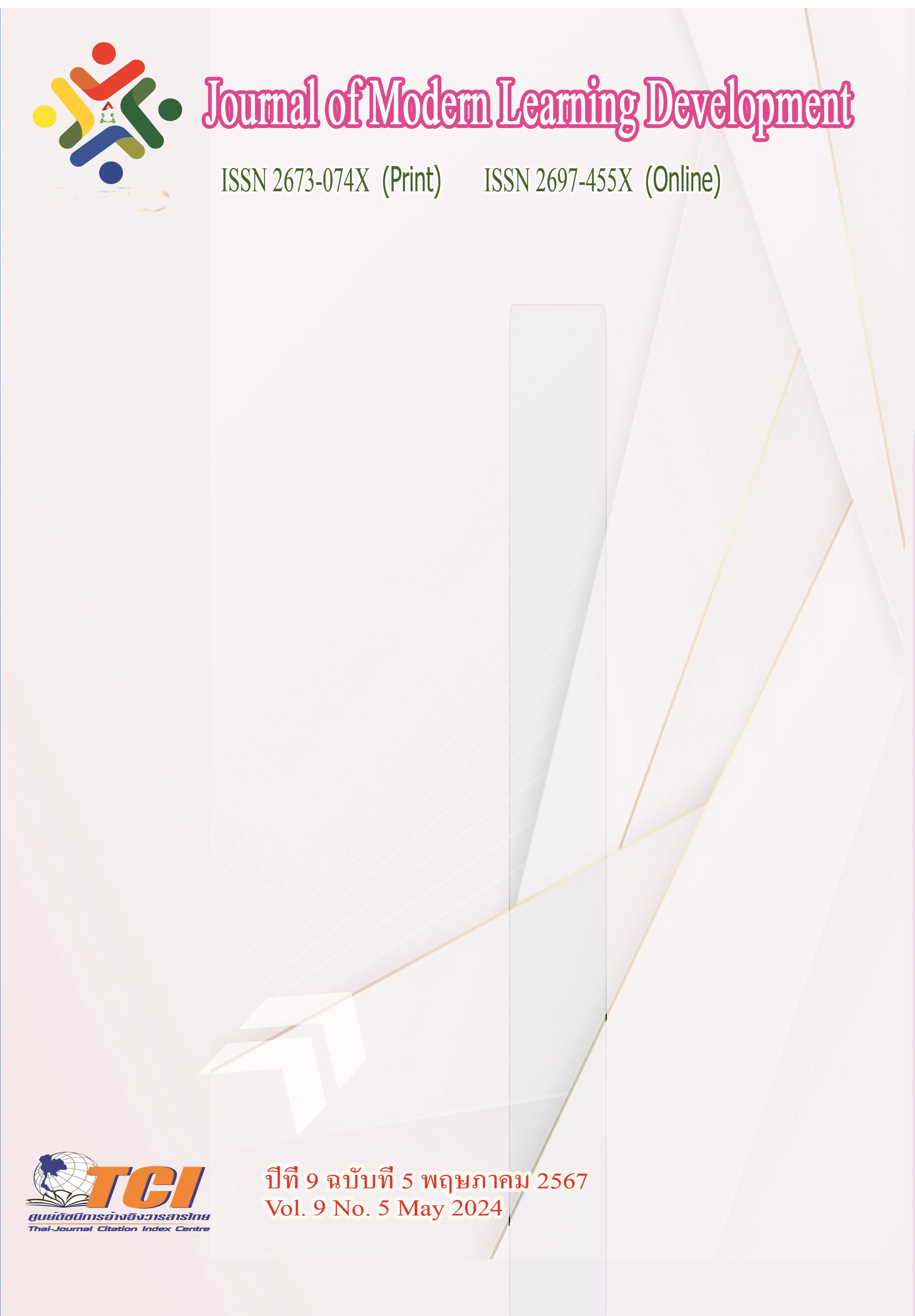Yangming's Mind Theory business management principles for Knowledge management in Modern Media Enterprises
Main Article Content
Abstract
Yangming's Mind Theory, as one of the important schools of traditional Chinese philosophy, represented by the Ming Dynasty thinker Wang Yangming, focuses on the concept of mind as reason and advocates the realization of spiritual sublimation through self-cultivation. In the field of contemporary business management, the concept of Yangming's Mind Theory was introduced, providing unique management principles for enterprises. This article analyzes the key principles of Yangming's Mind Theory in business management, summarizes the key words related to it, and deeply explores its background and significance. The business management principles of Yangming's Mind Theory emphasize the management of character. Leaders should improve their leadership through a correct understanding of their own psyche, which means the importance of personal cultivation of leaders. Mentality management is not only related to the personal qualities of leaders, but also affects the culture of the entire organization. In enterprises, leaders' mental attitude management can promote communication, improve emotional intelligence, and bring a healthier and more positive development environment to the organization. Benevolence is one of the core values of Yangming's Mind Theory and an important principle in corporate management. The corporate value system oriented by benevolence emphasizes humanistic care, mutual respect and harmonious coexistence. This kind of care and respect is not only reflected in the relationship between employees, but also reflected in the leader's concern for the individual development of employees. Establishing a corporate culture that focuses on humanistic care will help enhance employees' sense of belonging and loyalty, thereby enhancing the cohesion of the organization. In terms of ethics, Yangming's Mind Theory encourages enterprises to pay attention to moral considerations in decision-making and business activities. Value orientation is not only related to the company's internal code of conduct, but also related to the company's image in society. By considering moral and ethical factors in business decisions, companies can build a good reputation in society and become more competitive in the market.In addition, Yangming's Mind Theory focuses on self-examination and reflection, and advocates harmonious collaboration among teams. Team members should constantly reflect and revise their way of thinking to adapt to changes. At the same time, emphasizing teamwork and win-win concepts helps to establish a positive working atmosphere and improve team cohesion and creativity. This positive atmosphere can stimulate the potential of organizational members and promote corporate innovation and change. In summary, the business management principles of Yangming's Mind Theory are based on key words such as mindfulness management, benevolence, moral ethics, introspection and reflection, and teamwork, and provide useful thinking and guidance for enterprises. In today's fiercely competitive business environment, integrating Yangming's Mind Theory of can help cultivate business leaders and teams with characteristics such as humanistic care, value orientation, mind-based management, innovation and change, and teamwork, which will contribute to the sustainability of the enterprise. Provide more profound and comprehensive support for sustainable development.
Article Details
References
Li Wanqiu. (2016). "From the Yangming Heart Study to the "Chinese Dream" Ideal Education for Young College Students" Guizhou University of Finance and Economics, page 52.
Xiang Peng. (2014). "Yangming's Psychology and the Changes in Aesthetic Consciousness in the Mid- and Late Ming Dynasties" Sichuan Normal University, 43 pages.
Chen Yuanyuan. (2014). "Research on Moral Subjectivity in Wang Yangming's Theory of Mind", Hebei University, page 197.
Xing Yangyang. (2015). "Research on the Influence of Yangming's Psychology on the World Situation Novels of the Ming Dynasty", Guizhou University, 90 pages.
Shan Hongze. (2019). "Yangming's Psychology and Mysticism", Nankai University, 265 pages.
Liu Jia. (2019). "Philosophical Analysis of the Relationship between "Conscience" and "Knowledge of Seeing and Hearing" in Yangming's Theory of Mind, Guizhou University, page 66.
Shu Di. (2020). "Research on the Diffusion Mechanism and Place of Transmission of Yangming's Psychology in the Ming and Qing Dynasties", Nanjing Normal University, 66 pages.
Li Hao. (2020). "Research on the Concept of Rational Desire in Yangming Psychology", Hunan University of Science and Technology, page 68.
Jiang Xiaokun. (2020). "On the Influence of Buddhism on Wang Yangming's Theory of Mind", Shandong University, page 79.
Li Haichao. (2017). "Yangming Theory of Mind and the Development of Confucian Concepts of Modernity", Shandong University, 243 pages.
Sun Chenghao. (2017). "Research on the Current Situation and Relationship between the Moral Subjectivity and Materialistic Values of College Students' Yangming Theory of Mind" 2017, Yunnan Normal University, 80 pages.
Yan Ziru. (2018). "The Enlightenment of Yangming's Psychology on the Ideological and Political Education of Contemporary College Students", Nanjing Model University, page 55.
Li Xiaojie. (2015). "Research on Wang Yangming's Psychological Beliefs and Their Construction and Communication", Dalian University of Technology, 53 pages.Qin Siyan, "Yangming Xinxue Pingyi" 2016, Heilongjiang University, 144 pages.
Chen Jun. (2016). "Exploration of Conscience Thoughts in Yangming's Xinxue", Liaoning University, page 61.
Pan Chengjian. (2018). "Research on the Problem of "Evil" from the Perspective of Yangming's Psychology", Guizhou University, page 58.


